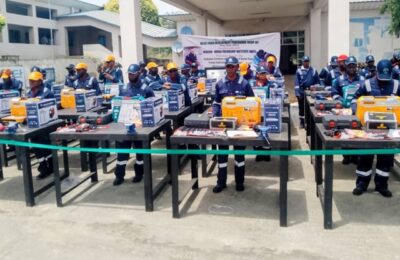The Igala Kingdom, once a beacon of cultural strength and political relevance, now stands as a shadow of its former glory. Rich in history and endowed with abundant human and natural resources, the kingdom should be a powerhouse, not a mere spectator, in the political theater of Nigeria. Yet, the narrative remains one of stagnation, disunity, and missed opportunities. This state of affairs is not a consequence of fate but a result of choices—choices born out of disunity, eroded values, and a lack of collective purpose.
Disunity has become the kingdom’s Achilles’ heel, fracturing the very fabric that once bound its people together. The once-sacred communal spirit that defined the Igala people has given way to self-interest and tribalism. Clans and communities that should be allies in progress have become adversaries, each seeking dominance over the other. The absence of unity has rendered the kingdom politically impotent, unable to harness its collective strength for a common cause.
Love and patriotism, the twin pillars of progress, have become scarce commodities. Where love thrives, collaboration follows; where patriotism is upheld, sacrifice becomes second nature. In their absence, the kingdom has descended into a state of indifference, where individual ambitions overshadow collective aspirations. Without these virtues, the Igala Kingdom remains a house divided, unable to stand in the face of external pressures and internal discord.
The youths, once heralded as the hope of tomorrow, now linger in disillusionment. Their potential is untapped, their voices muted by a system that neither nurtures nor inspires them. Disengaged from the political process, they have become spectators in a game they should be playing. Yet, the energy and creativity of the youth remain the kingdom’s most underutilized resource—a dormant force waiting to be awakened.
Cultural pride, the cornerstone of identity and unity, has been eroded over time. The values that once defined the Igala people—integrity, respect, and communal support—are now overshadowed by the allure of external influences. This loss of identity has weakened the kingdom’s sense of purpose, making it susceptible to manipulation and division.
Leadership, the compass that guides a people, has often pointed in the wrong direction. Self-serving leaders, driven by personal gain, have replaced visionaries who once sought the collective good. This betrayal of trust has left the people disillusioned, their faith in governance eroded. Yet, leadership remains the key to unlocking the kingdom’s potential—a tool that, if wielded wisely, can chart a new course toward progress.
The Igala Brothers and Friends Initiative (IBFI) and the Igala Cultural Development Association (ICDA) represent glimmers of hope in this bleak narrative. IBFI seeks to awaken the youth, instilling in them a sense of responsibility and purpose. Through education, advocacy, and empowerment, it strives to reengage the kingdom’s most vibrant demographic. ICDA, on the other hand, works to preserve the kingdom’s cultural heritage, fostering a sense of identity and belonging that is crucial for unity. These organizations embody the spirit of progress, offering platforms for collective action and transformation.
The time has come to rewrite the narrative of the Igala Kingdom. Unity must replace division, love must conquer indifference, and patriotism must overshadow self-interest. The kingdom’s people must rise above personal ambitions and embrace a collective vision for progress. It is not enough to lament the present state of affairs; action must follow. The strength of a people lies not in their numbers but in their resolve to act as one.
The Igala Kingdom has the potential to reclaim its place as a political and cultural powerhouse. The path forward requires courage, sacrifice, and a renewed commitment to the values that once defined it. This is not merely a call to action; it is a call to destiny. The narrative of backwardness must give way to one of progress, unity, and influence—a narrative that future generations will proudly inherit.
It is time to change the narrative, for the soul of the Igala Kingdom depends on it.
– Christopher Sunday
Kogi State Polytechnic, Lokoja.




